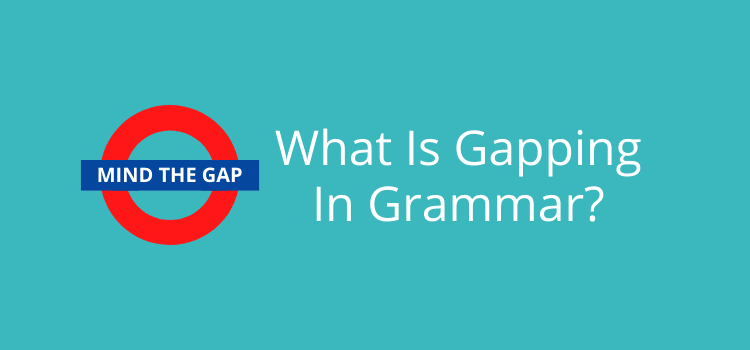
Gapping in grammar means the omission of a verb in the second of two coordinated clauses.
Crossword lovers probably know this clue. A grammar rule that deletes the repetition of verbs. The answer is gapping.
John R. Ross, an American poet and linguist, coined the word around 1970.
Before then, it was probably referred to as a form of ellipsis or redundancy.
How gapping in grammar works
You will likely find many complicated and technical explanations if you search reference sites to understand gapping.
For example, Wikipedia states the following: Canonical examples of gapping have a true “gap,” which means the elided material appears medially in the non-initial conjuncts, with a remnant to its left and a remnant to its right.
It’s a very complex way of saying that if you repeat a verb from the first clause in a second clause, you can often delete it. Here are some simple examples in the classic form. Words with a red strikethrough indicate gapping.
I went to work, and my brother went to school.
John wrote an essay, but his wife wrote a poem.
Jillian wants a new car, and her husband wants a boat.
But you can also use gapping with longer and more complex verb phrases.
Matthew wants to learn how to write a book, and Mary wants to learn how to write a theatre play.
Kathleen has been on a strict diet, and her sister has been on a strict diet too.
Max was sure that what he saw was a UFO, and also his brother was sure that what he saw was a UFO.
Other forms of gapping
Gapping in grammar is not restricted to verbs, though.
You can use it when you want to avoid other forms of repetition in writing.
These examples delete nouns or an adjective.
Jimmy is my eldest brother, and Tommy, my youngest brother.
There was a ginger cat, a black cat, and a tabby cat. Or: There was a ginger cat, a black cat, and a tabby cat.
I was upset about the result of the game, and David was upset as well.
Judy is so happy about your promotion and your boss is happy too.
You can also use it in questions.
Should I visit you, or should you visit me?
Did you inform Ken about the plans, or did you inform Tim about the plans?
Did Carrie arrive first, or did Karen arrive first?
Has Rory bought more shares than Mark has bought?
Mind the gap
When you travel by train in the UK, you have probably seen signs or heard the announcement, mind the gap.
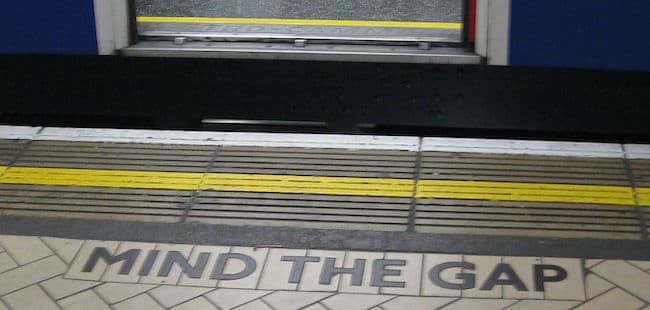
It warns about the space or gap between the train door and the station platform.
But for grammar, the gap is a space in a sentence where words might have appeared.
In many cases, however, gapping is simply a literary device you can use to avoid repeating words unnecessarily.
So there is no need for you to go hunting for it in your writing immediately.
But it is worth keeping in the back of your mind.
Summary
You might use gapping occasionally as a matter of style or change the register of a sentence or phrase.
Another use is to help you write more concisely.
But it’s certainly not a golden rule of grammar that you always need to obey.
I would hazard a guess that you already use gapping in grammar in your writing, but you didn’t know there was a name for it.
Well, now you know.
Related reading: Participial Phrase And Gerund Phrase – What’s The Difference?

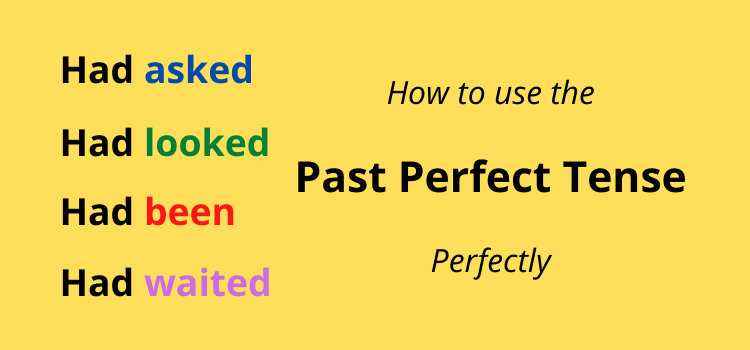
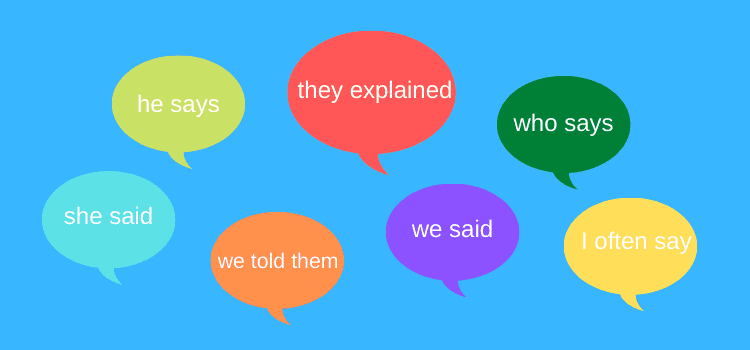
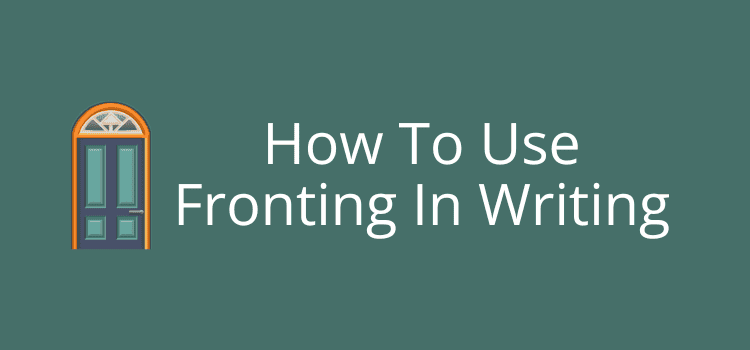
Typo alert …
“Kathleen has been on a strict diet, and he sister has been on a strict diet too.”
Thanks for the tip. The sentence has been corrected.
Thanks for this. I probably use gapping a lot without being aware of it. This clarifies.
I didn’t know it was called that. This may be slightly off the subject, but I’ve been wondering about punctuation for omitted words. Should I punctuate as if the missing words were there?
For instance, the sentence below omits the words ‘It was’ (which, I know, aren’t repeated words, as you describe gapping, so apologies if I’m changing the subject).
Can I use a semicolon, even though part two isn’t a complete sentence?
‘A full moon looked down on the white van in the forest clearing; little more than a pale smudge in the leafy darkness.’
or…
‘A full moon looked down on the white van in the forest clearing, little more than a pale smudge in the leafy darkness.’
(I know I could put a full stop and add the ‘It was’, but I’m on a tight wordcount here.)
I think a semicolon is correct because you are using two clauses that are directly related. Using a comma creates a splice, so it is not the right choice.